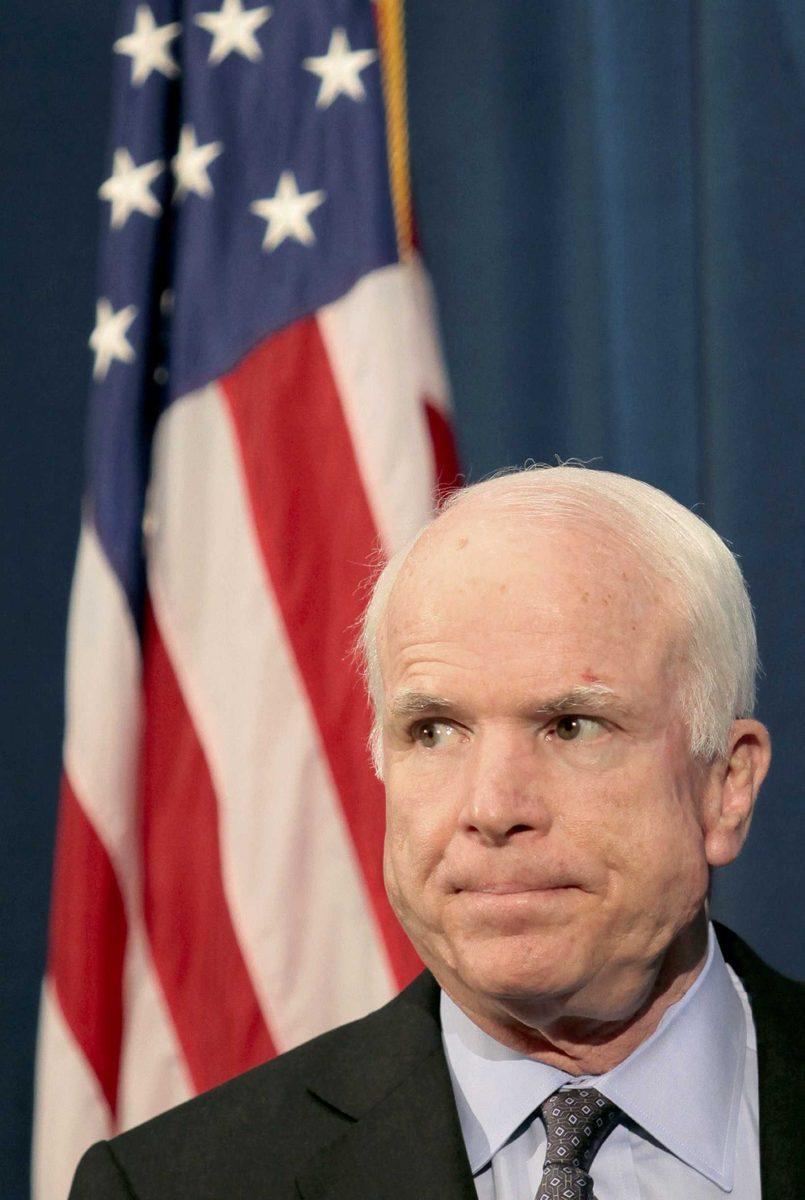Sen. John McCain has a reputation for liking underdogs.”20 mins to tip off. Butler in an upset over LSU,” McCain wrote in a March 19 tweet on Twitter.com. “The butler didn’t do it…! not a great start for my NCAA picks!”The updates sent from phones — called tweets — are limited to 140 characters and are part of a up-and-coming Web site called Twitter. Twitter is a “real-time short message service” that allows users to send status updates from their phones to individual accounts where others can view, or “follow,” them. Twitter has entered the political sphere, and one researcher says it’s here to stay. In a recent trend, some politicians are taking to their cell phones, creating Twitter accounts and sending frequent updates that range from simple constituent outreach to partisan fighting and even to personal information. “One of the teleprompters is between the President and me,” wrote Rep. Earl Blumenauer, D-Ore., during President Barack Obama’s February address to a joint session of Congress. “Jindal is weird,” he wrote later that night, after Jindal’s nationally televised response. Monica Postelnicu, professor for the Manship School of Mass Communication, completed a study of Twitter during the 2008 Presidential election and said Twitter “gives people access to politicians in ways that weren’t there before.” Postelnicu collected tweets during the last week of the election and analyzed them to see how people were talking about the candidates and the issues. “The conversation on Twitter was, to a point, shallow,” Postelnicu said. “There was little talk about policy issues.” Bob Mann, Manship School of Mass Communication professor and former communications director for former Louisiana Gov. Kathleen Blanco, agreed much of what happens in the political sphere on Twitter is shallow.”Much of what’s on there is fairly mundane,” Mann said. “I’m not sure I really need to know all that.” But Postelnicu said she also found with Twitter — as with other “new media” like Facebook and MySpace — those who participated in the political conversations said they were more likely to engage in the political process, and she believes, for that reason, Twitter has been a net positive on the political process. As a former communications director, Mann said he sees the draw some politicians have to Twitter — sending tweets directly from personal cell phones allows an official to bypass the media “filter” and send raw, unvarnished messages to the public. Twitter also gives politicians the chance to “monitor and handle public opinion,” Postelnicu said, giving politicians, much like the voters, a new opportunity to interact with their constituents. But, Mann said, even though the messages are unfiltered, the 140-character limit weakens Twitter’s value to politicians. Despite the technology’s flaws, Postelnicu said Twitter has “generated a ton of impressive media coverage” and, thanks to the success of Obama’s media strategy that integrated newer forms of media, Twitter is likely to stick around.”It’s here to stay. It’s a lot of fun,” she said.Despite the growing popularity of the service, Louisiana politicians are largely absent from the scene. Few members of the Louisiana Congressional delegation have Twitter accounts — and those that do, like Sen. David Vitter and Gov. Bobby Jindal, have less-developed and less-frequent posts than their counterparts around the country. Mann said politicians in Louisiana don’t use the internet as much as they should, and their absence on Twitter speaks to a larger question of the internet’s role for a politician. –Contact Nate Monroe at nmonroe@lsureveille.com
Politicians start using Twitter
April 14, 2009
U.S. Sen. John McCain arrives at a news conference at the US Embassy in Tokyo, Japan, April 10. McCain is one of many politicians using Twitter to communicate with people.





